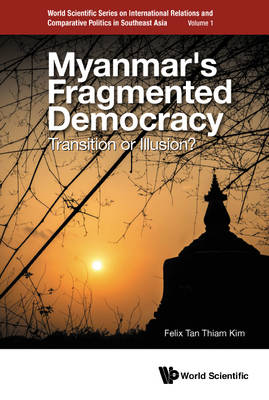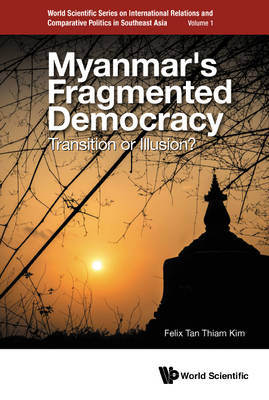
Bedankt voor het vertrouwen het afgelopen jaar! Om jou te bedanken bieden we GRATIS verzending (in België) aan op alles gedurende de hele maand januari.
- Afhalen na 1 uur in een winkel met voorraad
- In januari gratis thuislevering in België
- Ruim aanbod met 7 miljoen producten
Bedankt voor het vertrouwen het afgelopen jaar! Om jou te bedanken bieden we GRATIS verzending (in België) aan op alles gedurende de hele maand januari.
- Afhalen na 1 uur in een winkel met voorraad
- In januari gratis thuislevering in België
- Ruim aanbod met 7 miljoen producten
Zoeken
Omschrijving
The recent military coup in Myanmar perpetrated by the Tatmadaw has set the country back to the days of political uncertainty and military authoritarianism. This book examines how far the country has come since its nascent attempt at democratic reforms and democratisation in 2010.Each chapter considers some of the more prominent issues that have plagued Myanmar since political reforms started. First, there have been debates about the extent to which democratic reforms have been achieved since the Constitution was formalised in 2008. Second, what has been the significance of the three elections in 2010, 2015 and 2020? Third, how has the National League for Democracy transformed in the past decade? How far has the Union Solidarity and Development Party changed the political landscape? What roles did the Tatmadaw play in the last decade? Fourth, questions surrounding how the ethnic crisis, not least the Rohingya issue, have continued to dominate the country's political landscape in the last decade, thereby overshadowing its democratisation process.Finally, how far have these efforts at democracy demonstrated Myanmar's futile attempts at appeasing the domestic and international audience? Myanmar's relations with the global and regional community vis-à-vis the US, China, and the Association of Southeast Asian Nations have also taken a toll in the last decade. There is already a shift in power politics, especially with China determining the direction of Myanmar.Myanmar has been locked in a perpetual cycle transitioning between military authoritarianism and democratisation. These prevailing issues have led to a fragmented democracy and a lost opportunity to demonstrate its foray into a genuine democracy.
Specificaties
Betrokkenen
- Auteur(s):
- Uitgeverij:
Inhoud
- Aantal bladzijden:
- 296
- Taal:
- Engels
- Reeks:
Eigenschappen
- Productcode (EAN):
- 9789811251351
- Verschijningsdatum:
- 11/08/2022
- Uitvoering:
- Hardcover
- Formaat:
- Genaaid
- Afmetingen:
- 152 mm x 229 mm
- Gewicht:
- 562 g

Alleen bij Standaard Boekhandel
+ 310 punten op je klantenkaart van Standaard Boekhandel
Beoordelingen
We publiceren alleen reviews die voldoen aan de voorwaarden voor reviews. Bekijk onze voorwaarden voor reviews.









